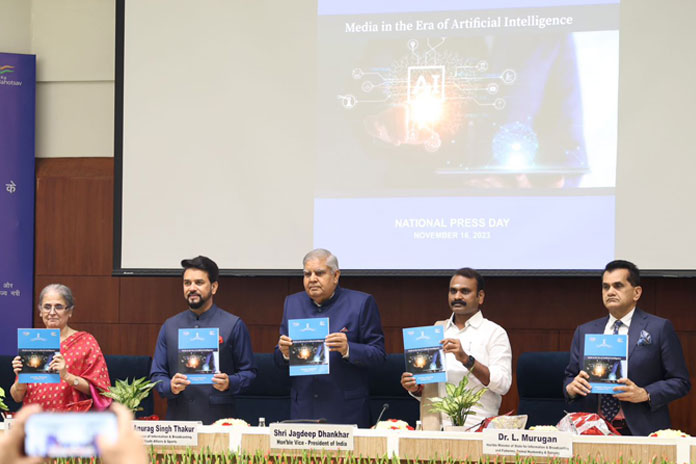
As Artificial intelligence (AI) continues to make transformative strides across various sectors, the Press Council of India has put forth a compelling argument on its impact on the media landscape.
AI, known for its multifaceted capabilities spanning from editing and proofreading to language translation and transcription, is now also seen as a tool for generating news articles and summaries. The proliferation of AI in electronic media, with its ability to aid in video editing, scriptwriting, and creating compelling headlines, has ushered in an era of AI-generated news anchors. These advances, while cutting-edge, come with the potential to significantly reduce production expenses.
However, it’s not all smooth sailing. With AI’s capabilities to monitor social media platforms, journalists can remain abreast of breaking news and gather valuable insights for advertising planning. Yet, this very technology is also being armed to fight against the rise of misinformation and fake news. The growing presence of AI tools such as ChatGPT, Stable Diffusion, and Genesis in journalism underscores their value, but the integrity and authenticity of content remain in question. There’s a palpable concern that while AI can complement human tasks, it may also replace the nuance and creativity inherent in human journalism.
The ethical implications are also under scrutiny. AI’s ability to create lifelike media content has triggered de- bates about its adherence to journalistic standards and ethics, especially with the rising menace of deepfakes propagating false information.
Recognizing the challenges and potential pitfalls, the Press Council of India emphasizes the need to ensure that these technologies do not inherit biases present in data or compromise media integrity. Emphasizing the importance of emotional nuances in reporting, which remain beyond AI’s grasp, the Council stresses the need for continued human oversight.
With the overarching theme of ‘Media in the era of Artificial Intelligence’, the Council seeks to initiate a broad discussion, inviting insights and perspectives from various stakeholders. The rapid growth of AI in media underscores the urgency of this debate, charting the path for the future of journalism in the digital age.









